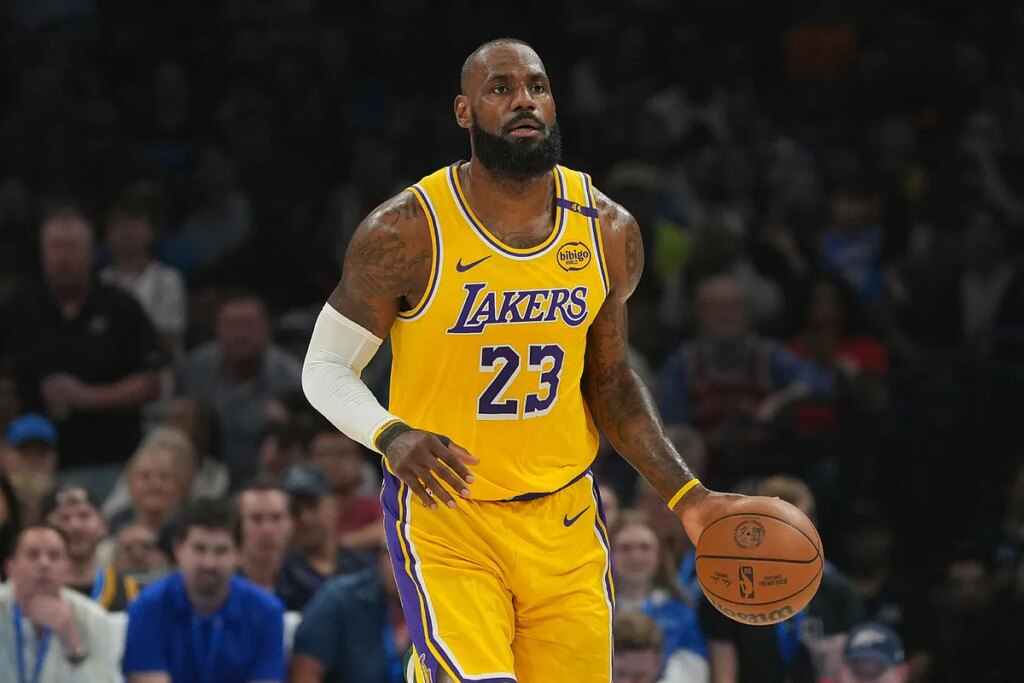LeBron James has been the subject of countless storylines across his legendary NBA career, but rarely has his reputation faced scrutiny quite like this.
The Los Angeles Lakers star and four-time NBA champion is once again under the microscope after a recent accusation from former Atlanta Hawks point guard Jeff Teague, who suggested James may have benefited from performance-enhancing drugs during his prime years with the Miami Heat.
For basketball fans, James’ years in Miami are remembered as the peak of his physical dominance. From 2010 to 2014, he transformed the Heat into an NBA powerhouse, reaching four straight Finals and capturing two titles.
James was an uncontainable force, a blend of size, speed, and athleticism that left even the most seasoned defenders grasping at air. Jeff Teague, who regularly faced James as an Atlanta Hawk, was among those who suffered at his hands.
But Teague, now retired and hosting the Club520 podcast, made waves this week with a claim that sent shockwaves across the league.
“They started testing for HGH and he had to sit out. He said his back was hurting and he sat out for three weeks then came back skinny,” Teague alleged, referring to a period during LeBron’s Miami tenure.
The claim surfaced in a podcast segment that quickly went viral, drawing intense reactions from NBA fans and analysts alike.
Scrutiny grows as NBA responds to Teague’s comments
The NBA community is no stranger to wild rumors and bold statements, but Teague’s comments stand out given the gravity of the accusation and the lack of direct evidence.
LeBron James, now 39 and still competing at an elite level, has long been regarded as one of the greatest athletes not just in basketball, but in all of sports. His combination of power and skill has become the benchmark for a generation.
Despite Teague’s assertion, there has been no official evidence or failed drug test to support claims that James used performance-enhancing drugs at any point in his career.
The NBA has rigorous testing protocols for substances such as human growth hormone (HGH), and there have never been any reports linking LeBron to a violation of league policy.
Yet, the conversation has reignited debate about the effectiveness and transparency of drug testing in professional basketball.
Critics argue that the NBA’s anti-doping measures lag behind other major sports, while league officials and player representatives routinely point to their comprehensive testing program.
James’ longevity is often cited as evidence of his commitment to fitness and training innovation. Even as he enters his third decade in the league, he continues to perform at a high level.
Legacy, reputation, and the challenge of greatness
While Teague’s remarks will undoubtedly fuel social media debates, the NBA community awaits any formal response or further substantiation of these claims.
LeBron’s supporters point to his clean record and status as an ambassador for the game, while skeptics see Teague’s comments as part of a larger trend of questioning greatness.
For now, LeBron James continues his career with the Lakers, his legacy secure but the scrutiny ever-present.
Whether Teague’s claims prompt further investigation or simply fade as another NBA controversy, the discussion once again underscores the unique pressures faced by athletes at the very top of their profession.
Read the full article here

